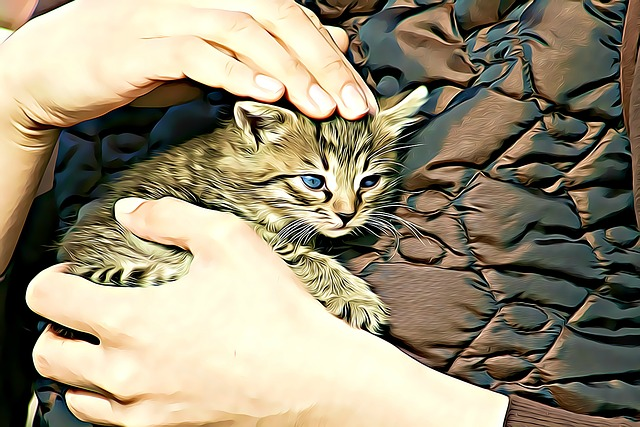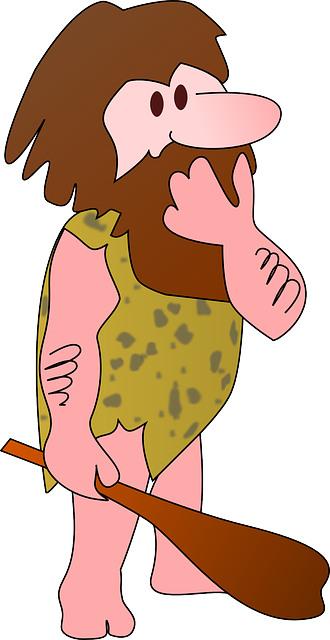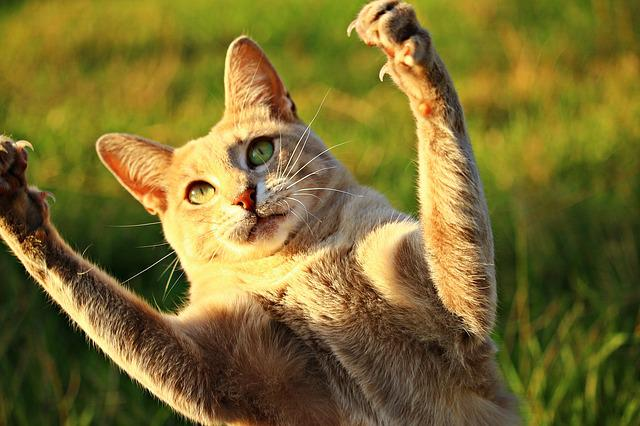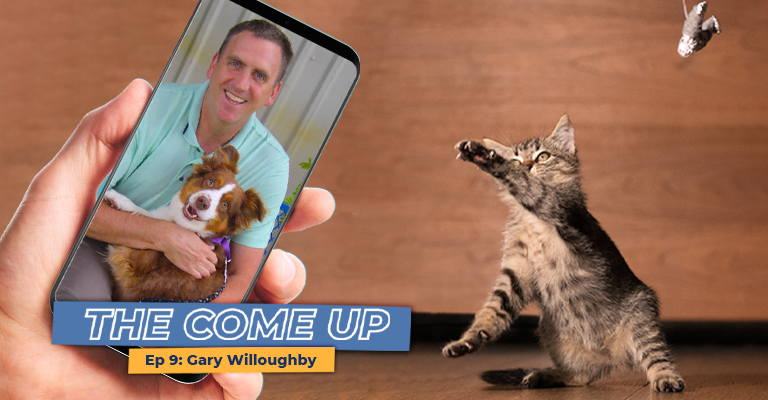Should cats have claws?
Should men have cats?
Why do we hoomans bond so much with our four-legged friends?

These questions and all things pets are answered by Pet Adoption Specialist Gary Willoughby, Executive Director of the Gulfcoast Humane Society, a non-profit no-kill Fort Myers animal shelter funded only by donations. The facility takes in 3,000 homeless pets a year and provides veterinary services, transitioning homeless pets into happy, loving homes.

Gary is Scrappy’s guest on Episode 9 of The Come Up, Content with Teeth’s video podcast chronicling dynamic entrepreneurs in SWFL from Naples to Sarasota.
Episode 9: SWFL Pet Adoption Highlights

Da’ Big Snip: Gary mentions a whopping percentage of SWFL dogs that are not spayed or neutered. The number will blow your mind. Gary’s animal services shelter performs almost 9000 operations on adoptable dogs annually to remedy this problem.
The Big Chill: Scrappy describes what is the best spot to de-stress in Lee County, one that is open some nights and weekends too. Learn what it is and why it’s better than a yoga studio or bar.

Pre-Historic Pets: Find out more about early humanity’s spiritual connection with their pets. Gary describes how early humans bonded with and domesticated wild animals nearly 12,000 years ago. This bond continues and is fostered by animal shelters where SWFL residents can adopt dogs and other animals.

Get Your Animal Questions Answered: Is it cruel to de-claw a cat? How do you train a puppy? Gary answers all your pressing animal questions. His answers on homeless pets might surprise you.

Catch other key nuggets in Episode 9 of The Come Up like how dogs help autistic children and how distinctive personalities emerge in a litter of lovable puppies. This episode is so much more than divulging a rescue spot to adopt dogs and cats.
About Gary Willoughby & Content with Teeth
For UnBoring Content like The Come Up, contact Content with Teeth HERE. Find out more about Gary Willoughby and the Gulfcoast Humane Society HERE.
The Come Up Episode 9 Video Transcript
Scrappy:
What up? What up? What up? What up? What up? I’m Scrap Jackson. Welcome to The Come Up. It’s a video podcast, celebrating Southwest Florida’s most interesting entrepreneurs and executives. We’re brought to you by Content with Teeth, a creative content marketing agency right here in Southwest Florida. They do it really big like this Fathead behind me. If you want to be a guest, reach out to me at @HeyScrappy on Instagram, or text Content with Teeth at 21000. That’s Content with Teeth.
Our guest today is Gary Willoughby, Executive Director of the Gulf Coast Humane Society. It’s a non-profit organization in Fort Myers, which is a no-kill animal shelter funded only by donations. They take in 3,000 homeless animals a year, provide veterinarian care, and transition rescued animals into happy, loving homes. Gary, welcome.
Gary Willoughby:
Thank you so much for inviting me.
Scrappy:
Yeah, it’s great to have you here. Let’s start with the hard facts. 80% of dogs in Southwest Florida are not spayed or neutered.
Gary Willoughby:
That sounds about right and we’re doing our best to try to remedy. We do almost 9,000 spay/neuter surgeries every year in our clinic.
Scrappy:
What do you profess to people out there that are being irresponsible with this?
Gary Willoughby:
Well, again, if they only have one pet, they may think it’s not necessary because their dog or cat’s not going to get out, or their cat’s not going to get pregnant, but animals get loose all the time. It’s something that we strongly recommend. There’s too many pets ending up in shelters in one of the best remedies is spay and neuter.
Scrappy:
I have interesting story for you. I worked on Palm Beach Boulevard and my work was stressed. I love what I did, but on a stressful moment, I’d say, “You know what, I’m going to go by your facility and I’m going to pet the dogs, talk to the cats, and just relax for 15 or 20 minutes.” It always did the trick always. Now, that afternoon, I went back happy and healthy and ready to go. Is everybody allowed just to come by and browse?
Gary Willoughby:
Oh, absolutely. You don’t have to have an appointment to come see our animals. We’re open seven days a week here, so we fit about any schedule, again, including one night, Thursday night, today, we’re open until 7:00, and then open again Saturday and Sunday, so come by. You don’t have to be even ready to adopt. You may just want to come and ask them questions. If you already have a dog at home, you want to bring your dog out to meet one of our other dogs, we also have folks that help you make sure it’s a good fit for your family.
Scrappy:
Okay. I went through this process for weeks, checking out your cats and your dogs and having a nice time with them. I finally adopted and I got Zoe, my cat. It’s very cathartic. Pets are very cathartic. Can you elaborate on that?
Gary Willoughby:
Yeah, it’s something called the human/animal bond that we’re big believers in you. Again, we think of animals as part of our family. There’s a lot of studies showing how they help with your blood pressure, giving you a reason to get out of bed in the morning. Sometimes if people are fighting depression, or they’re not feeling well in general, knowing that animal’s counting on you for care, for feeding, to take your dog for a walk, all that, it’s good for you, and obviously, it’s good for that animal that needs you.
Scrappy:
I call it a spiritual connection. I feel like that emotional bond between an owner and a pet is so profound that it’s hard to put to words.
Gary Willoughby:
Yeah, they’re 100% reliant on us. We’ve domesticated animals many thousands of years ago because they were important to us. Our ancestors knew that and we first domesticated dogs, but way back in 16,000 BC, so it’s been part of our lives for many, many, many generations, and we know that importance. That’s what we’re always advocating to keep animals in loving homes if they already are there and they need help with pet food or affordable veterinary care, or whatever, the last thing we want to do is see somebody’s family broken up by bringing their animals to us when we can help them keep it in the home.
Scrappy:
Absolutely, absolutely. Speaking about cathartic, I’ll give you a quick story. There was this kid with autism and his mom was actually going to see some dogs and check them out. She was actually going there shopping, if you will, for her nephew, but her child with autism had three dogs approach him, one, after he screamed, he screamed really loud, threw his hands up in the air. He was out of control. One dog ran, one dog approached him, and the other dog just sat there and looked at him, and it was so calm and so wonderful that he actually was trained to be a service dog. That dog to this day is helping this child with autism. I really feel like it’s something to promote is not just the camaraderie and the companion that we get from a cat or a dog, but also the wonderful effects they have on us.
Gary Willoughby:
Absolutely. There are many people that are taking advantage of emotional support animals to help them add value to their daily lives and animals like in the situation you just described often can read our body language and they pick us as adopters as often as we pick them. We may come in thinking we want one dog, and then another dog you may see really knows, “You’re my human and I want you,” and they send that signal to us and we end up adopting that dog or that cat. Again, especially folks with special needs. Not every animal’s perfect for every family, and so that’s great that you have that experience. Again, we see that. We have folks from Lark and other community organizations that come out here and spend time here and work here one day a week and the way they are around the animals is really incredible to see them come out of their shells.
Scrappy:
Is it true they take on the personality of their owner, or are they innate, and they stick that way?
Gary Willoughby:
Yeah, I think they probably stick that way. They learn habits from us. Again, if we’re couch potato, they might end up being that way as well, if we’re very active, but a lot of it is in innate in their personalities already, and that may be why we’re drawn to somebody. Usually, we see that couch potato dog with a couch potato type person, and that person that likes to jog three or four miles a day, they’re going to pick an animal that’s equally able to do that jogging alongside with them.
Scrappy:
How soon can you tell a puppy’s personality? How many weeks old?
Gary Willoughby:
I mean, I guess we see them at all ages. Oftentimes, they’re with a mom and sometimes that can be harder how big the litter is, so they’re forming their… You can tell the differences in a litter. We just recently had a momma dog of nine puppies that came here when the puppies were pretty young and it didn’t take long at all to see they were nine different personalities. Sometimes they’re also even, they look very different, lots of different colors and shapes. You don’t always know who the father is. We just saw the mama dog here, but nine distinctive personalities in these puppies.
Scrappy:
Do you have any hints as far as adopters coming to facility and looking for a puppy as far as how to pick?
Gary Willoughby:
Yeah. Shelters generally don’t get a lot of puppies. When we do, they tend to get adopted quickly. That’s where I would encourage you, like you’ve done in the past, is come and visit, talk to some of our staff that work with them every day. They can start starting off with asking new questions about what you’re looking for, your living arrangements, other people and other animals in your house, how active you want to be. Are you looking for somebody to go on car rides with you, or on your boat, or just to play around the backyard? Learning more about you and your family helps identify the type of puppy, the breed, the characteristics, the sizes, and all that would be best suited for your house.
Scrappy:
Gary, as an executive director, how did you get in this game? What motivated you to become where you are today?
Gary Willoughby:
Yeah. It wasn’t a direct path. I started off this shelter actually as a kid, I moved to Florida when I was young, and I actually adopted my first kitten from this shelter in 1979.
Scrappy:
Wow.
Gary Willoughby:
So, I go back to the organization quite a ways. Right after I graduated college, I adopted a dog from another group in St. Pete and I started volunteering for them and then I fostered and I helped at special events. Later on, I was a board member of a different shelter here in North Fort Myers at the Animal Refuge Center. After I finished grad school, I decided that I wanted to make this my not just something I did on the side, or as my hobby, or my volunteerism, I wanted to do this full-time, and so that’s what I’ve done for about the last 15 or 16 years is worked in animal welfare organizations in several different states, and was super lucky that this opportunity back in my hometown became available last year.
Scrappy:
How rewarding is it?
Gary Willoughby:
It’s an emotional rollercoaster some days because when you love animals as much as we do, you see abuse and neglect, but when you see those animals overcome that and find that great home afterwards, it recharges you. It’s really, when you see animals that come in scared and leave happy as could be and getting those updates from people who’ve adopted, it makes all the difference in the world for us.
Scrappy:
One of the biggest problems with cats is they scratch. They scratch the furniture, they scratch a very various things, so do we declaw them? Because I’ve heard a lot of bad things about declawing.
Gary Willoughby:
Yeah, I was most recently was up in New York state and we had it banned at the state level, so it’s against a law to declaw cats up there. It’s not something we would do or recommend. We understand, again, why people are concerned about nobody wants to be scratched, and especially if they have thin skin and they’re worried about bleeding or things, but at home I have lots of little scratching pads and scratching posts and you train. My cat was five when I adopted him and it took no time at all to get him used to scratching on those. My furniture’s all safe, I’m safe, I don’t have any, so they can be trained out of it in most cases. Again, our staff is happy to offer some advice to folks, because again, the veterinarian share with us how troubling of a procedure it is for the cat’s health to do that, so we strongly discourage that.
Scrappy:
Sure, sure, sure. How smart are cats?
Gary Willoughby:
I guess like people, I mean, they vary. Mine seems to be a very bright guy and they like the routine. He’s friendly. He’s very, very affectionate for 30 seconds and then he runs off and does something else. My cat’s pretty smart and I think most of them are. They’re more trainable than I think people know, too. Some people leash-walk their cats, some train them to walk through a cat door to go to the porch. Again, they’re usually pretty bright creatures. Again, they’re very different personalities than dogs, but again, I have both at home, and love them both equally.
Scrappy:
Okay. You have a dog and a cat. Are you inclined to take all of them home at the end of the day?
Gary Willoughby:
I’ve been guilty of that in the past where I’ve had four dogs and three cats, plus fostering animals, and I wasn’t even the worst example in my place of work. I’m better at it now. My little dog is old and diabetic and visually impaired, and so right now he’s not looking for a new buddy, so I try to be sensitive to… I do take animals on the news all the time and I fall in love with a different dog just about every day, so I really just try to celebrate when I find that right family for them and they get adopted because I know as much as I love one dog tomorrow, there’s going to be another one in this place I like just as much.
Scrappy:
Sure, sure, sure. You have a cat, I have a cat, so we’re guys that have cats, but in some respects, I still hear that it’s not cool for a guy to have a cat. Sometimes I mention to people at work, “Yeah, I’ve got a cat and I’m proud of it,” and they look at me sideways. How do you respond to that?
Gary Willoughby:
Yeah. Again, to each his own, I guess. I’ve always loved cats and loved all animals. I’ve had rabbits in the past. Yeah, I don’t know why it is that guys think it’s not cool to have cats. Although again, we are fortunate. We’re around a lot of our volunteers and our staff. The guys here have cats and like them as well. Doesn’t mean you’re less of a guy because you have a cat. I think I have a really cool cat. His name is Emmett. I think he’s awesome. Even when I took him on the news, the guy interviewing me there wasn’t a big cat fan, I could tell, and that’s okay. Again, maybe that’s peer pressure, or how they’re brought up, maybe their dads didn’t like cats as well. I love them. More for me, I guess. If they don’t, I want them.
Scrappy:
Okay, okay. I have a couple of feral cats in my neighborhood. Is it dangerous to touch them?
Gary Willoughby:
Not dangerous to touch them? I mean, they’re usually more likely to run away from you, so you’re probably not going to be able to. We do a lot of TNR surgeries here at our clinic and work with a lot of groups who trap them in the communities to make sure they’re spayed or neutered. But again, they’re happy just to have some food left out for them. They don’t want to bother you. They want you far away from them. Our goal is just to make sure there’s not a lot of unplanned litters of kittens coming from those feral cats, because again, when they’re born outside, that’s a tough environment for them. Those also, if they’re not socialized at a young age, by the time they’re seven or eight weeks old, they may not be able to be socialized.
Scrappy:
Interesting, interesting.
Gary Willoughby:
So, the sooner we can get them in, and the feral cat groups we work with, when they catch them, we try to take the kittens in and foster them and socialize them so they can also be adopted inside houses, not outside.
Scrappy:
Okay. Huge general question for you. Tips on how to train your dog.
Gary Willoughby:
Hmm. Probably I would consult the professionals in that. There are a large amount of… You can do general dog training classes or puppy classes at your local PetSmart or things like that. I’ve done that in the past with animals. There are a lot of specialists depending on what your dogs, what it needs training on, so if it’s jumping a lot, if it’s training on housebreaking, on how to get along with other dogs, there’s a lot of different things. There are experts who make this profession just studying dog psychology and behavioral tendencies, because again, all dogs, just like people, are all individuals, and so their care plan needs to be tailored to their specific issues and their home environment. Sometimes the trainers will tell us as well part of it’s also training us as the dog owners that sometimes we’re part of the reason why their behavior, we may not always be reading the body language, and we might need training ourselves just as much as the dog does.
Scrappy:
Interesting. Very interesting. More specifically, how do we train a puppy to pee and poop outside
Gary Willoughby:
Crate training is what I’ve done. I haven’t had puppies often, but crate tanning, getting them into a routine. Again, if you’re were somebody who’s gone 12 hours a day, that puppy’s not going to hold it that long, so puppy pads in your crate. Even my older dogs now, every time they drink, or every time he eats, he’s going outside right afterwards, so getting him out, trying to read that body language. When the puppy’s done playing, when he is done eating, or drinking, or wakes up from a nap, he’s got to go, so getting him outside quickly and teaching him that routine and then celebrating when he does it good outside and then bringing him back inside and giving him a treat and all that, so rewarding that good behavior. They want to please us.
Scrappy:
Absolutely. Absolutely. I’ve heard mixed opinions about crating. You believe in it?
Gary Willoughby:
Yeah, I have for years and years. Again, making sure it’s a large enough crate. You don’t get one when they’re a puppy and then they can barely squeeze in there later on. You want to make sure they have room for their treats and their water and their bed. I have a dog bed in mine for my little dog. Especially if you have other pets in the home, again, some people may have a spare bedroom, or something that they use. The dogs often… I look at it, I have music on at home as well, I make sure the blinds are drawn, so it’s not too bright. Just try to have a nice… Just like we want to sleep in a comfortable environment, you want to make sure it’s comfortable for your dog.
Scrappy:
Sure.








